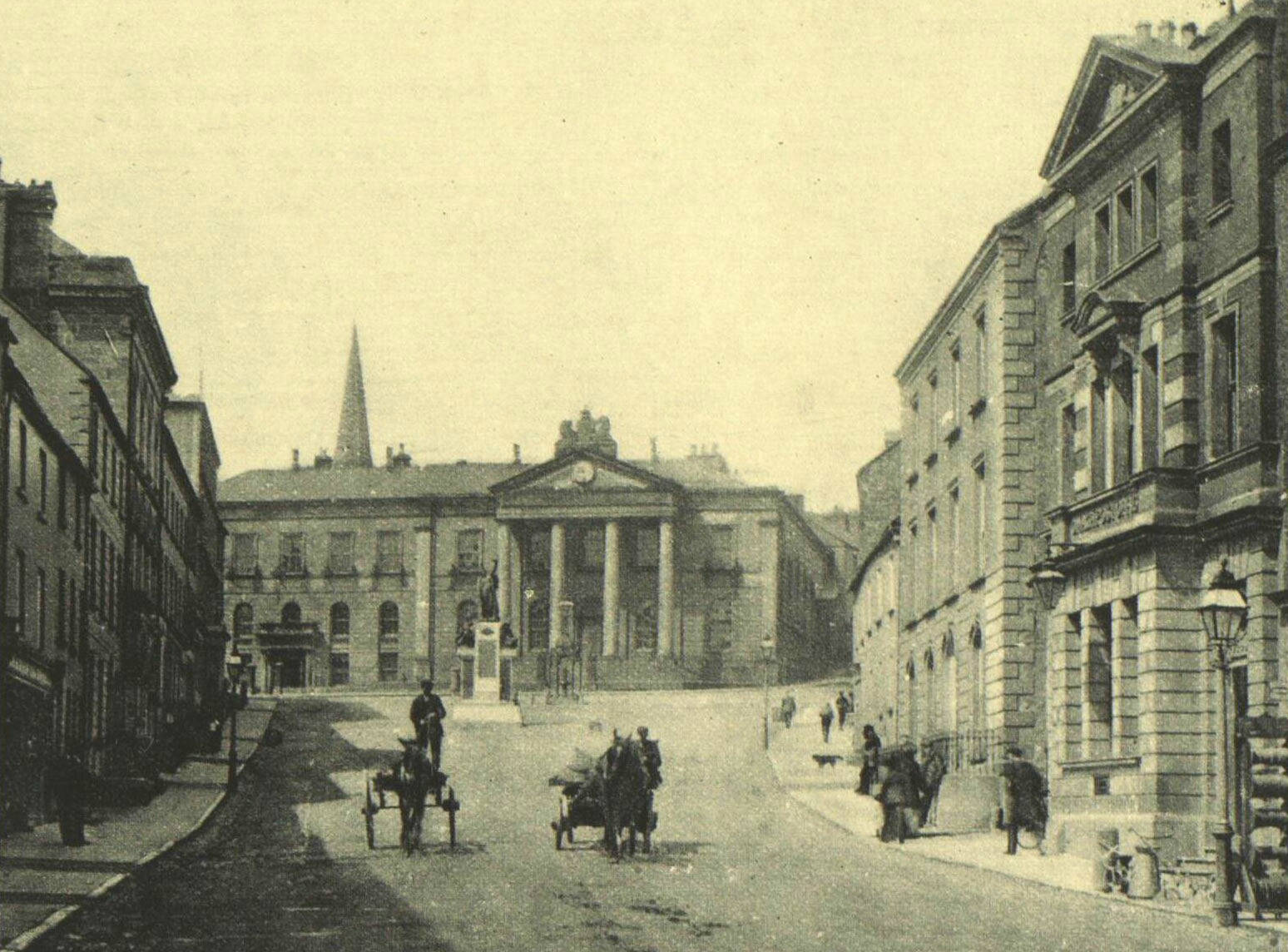Tyrone woman deserted on wedding day wins claim for ‘breach of promise’
Omagh, 15 June 1922 – A Co. Tyrone woman has been awarded £450 damages and costs after a judge found an ex-soldier guilty of a breach of promise of marriage.
23-year-old Kathleen Donnelly, Seskinore, Omagh, the only daughter of a Tyrone farmer, had been engaged to marry Captain George Evans, also of Omagh and formerly a member of the 10th (Irish Division). The defendant, the judge was informed, was possessed of considerable wealth: his farm was 140 acres, and he also had a large residence, a sawmill and a bog.
On leaving the army, Captain Evans bought a farm at Seskinore for £4,350 and had been introduced to Ms Donnelly by her brother in the spring or summer of 1920.
His letters to her became increasingly affectionate; he initially opened with ‘Dear Miss Donnelly’ before evolving to ‘Dear Katie’, ‘Dear K.’, ‘Dear Kit’ and ‘My Dear Kathleen’. That September, Captain Evans proposed to Ms Donnelly, having received her father’s permission to marry, and purchased for her a valuable diamond and sapphire engagement ring. The engagement was announced in the pages of the Irish Independent.
He took Ms Donnelly to sports and races and travelled around the country, introducing her as his fiancée.
He asked her to have cards printed with the message: ‘With compliments from Capt and Mrs G. Evans, Greenmount Lodge. Married at Cathedral, Marlborough St., Dublin, 8th June 1921’. It was decided to shift the date and venue to 14 June at the Catholic Church in Seskinore.
On the eve of the planned wedding, however, Capt. Evans told the girl’s father that he would not marry her and he told her brother that he would not marry her unless he was given £2,000.
According to the prosecuting counsel, Ms Donnelly only learned that she was to be deserted at the altar on the morning of what was supposed to be her wedding day and she was given no reason why.
On 30 July, more than a month later, Ms Donnelly wrote a letter to the defendant. It began: ‘Dear Capt. Evans – I am writing to you on a subject that I would much rather forget, but I can’t forget. I wonder if you realise the injury you have done me. You told my brother that I was to blame. Kindly explain. I am anxious to know by return why you played this shabby trick upon me, after you asking me to marry you, and having all arrangements made; it certainly was not the act of a gentleman.’
The letter was that of a ‘decent girl’, the prosecuting counsel asserted, but the defendant had shown no decency and had only money on his mind.
Captain Evans has since married another woman. His wife, it is claimed, is a woman of ‘considerable means’.
[Editor's note: This is an article from Century Ireland, a fortnightly online newspaper, written from the perspective of a journalist 100 years ago, based on news reports of the time.]





















